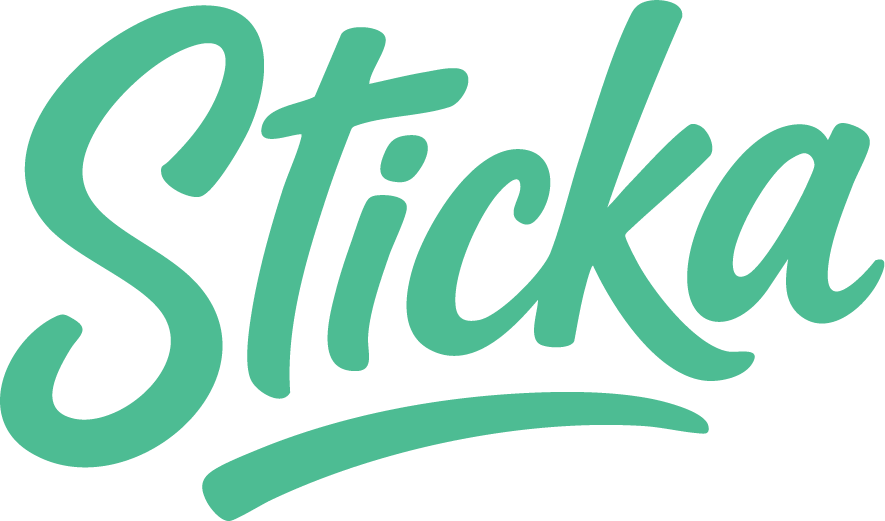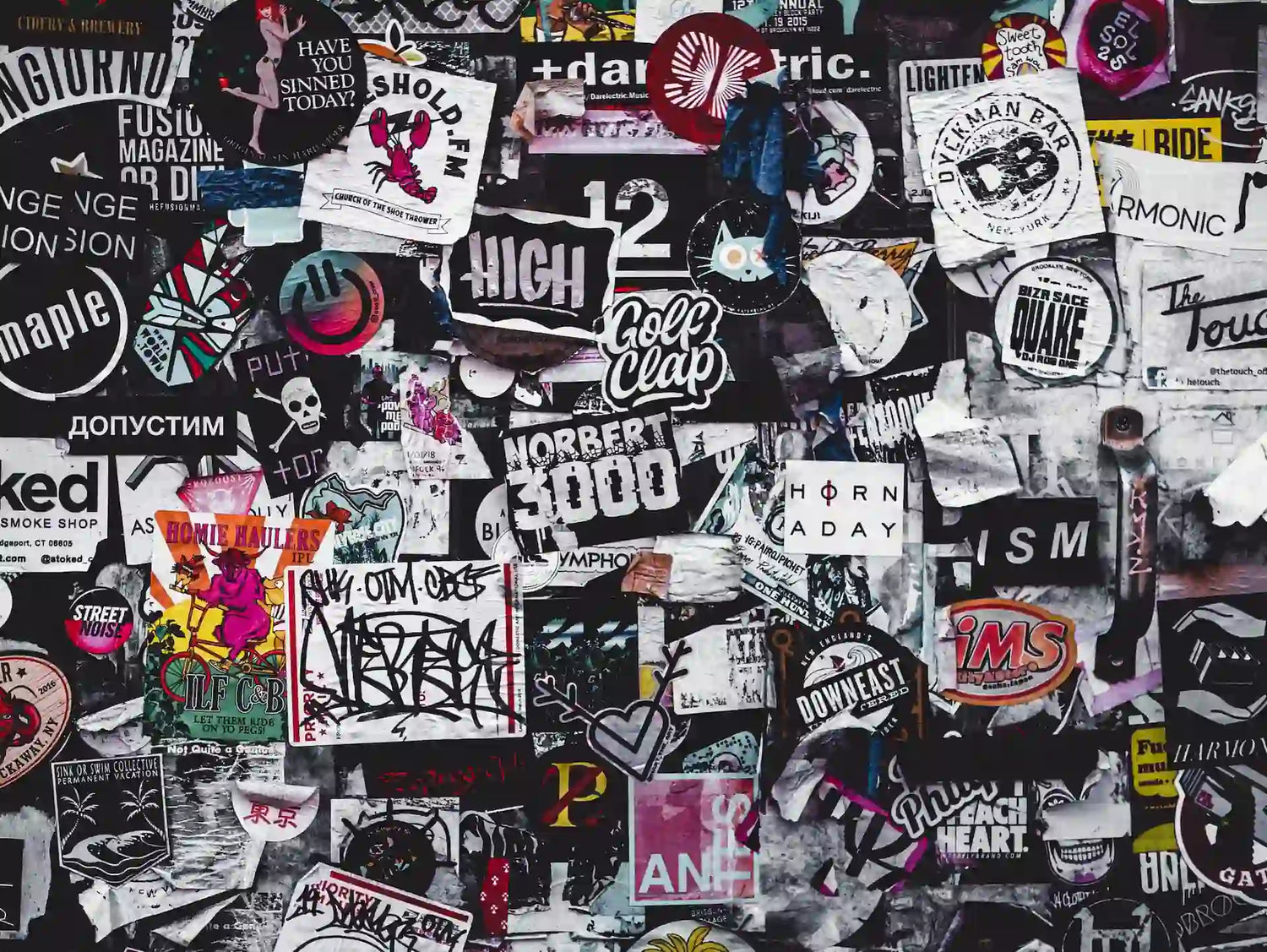Stickers, those small adhesive wonders, have found a ubiquitous place in our lives. From personal expression to branding and marketing, the uses of stickers are diverse and intriguing. In this comprehensive guide, we'll delve into the world of stickers, exploring their types, designing nuances, printing processes, and their myriad applications. Let's peel off the layers and uncover the adhesive-backed stories behind these captivating pieces of art.
I. Introduction
A. Definition of Stickers
Stickers, often referred to as decals, are adhesive labels or images that can be attached to various surfaces. They come in different shapes, sizes, and materials, making them versatile in both personal and professional realms.
B. Historical Background
The history of stickers dates back to ancient civilizations, where they were used for decorative and communicative purposes. Fast forward to the modern era, and stickers have evolved into a global phenomenon, playing a role in self-expression, branding, and more.
II. Types of Stickers
A. Vinyl Stickers
1. Characteristics
Vinyl stickers are known for their durability and weather-resistant properties, making them ideal for outdoor use.
2. Common Uses
From vehicle decals to outdoor signage, vinyl stickers find applications in diverse settings, thanks to their robust nature.
B. Paper Stickers
1. Features
Paper stickers offer a cost-effective and versatile option, suitable for indoor applications.
2. Applications
From product labels to event promotions, paper stickers are favored for their ease of printing and affordability.
C. Die-cut Stickers
1. Unique Attributes
Die-cut stickers are precisely cut into custom shapes, adding a creative and personalized touch.
2. Creative Possibilities
The ability to choose intricate shapes enhances the visual appeal, making die-cut stickers popular in artistic and branding ventures.
III. Designing Stickers
A. Software Options
1. Adobe Illustrator
Professional designers often opt for Adobe Illustrator for its robust features, enabling intricate and high-quality sticker designs.
2. Canva
For beginners and DIY enthusiasts, Canva provides user-friendly tools to create aesthetically pleasing stickers.
B. Key Design Elements
1. Color Schemes
Choosing the right color palette is crucial for evoking emotions and conveying messages effectively.
2. Typography
The selection of fonts and text placement plays a vital role in the overall sticker design, impacting readability and visual appeal.
IV. Printing and Materials
A. Printing Methods
1. Digital Printing
Digital printing offers cost-effective solutions for small batches, ensuring vibrant and detailed sticker reproductions.
2. Offset Printing
Offset printing is preferred for large-scale sticker production, providing high-quality and consistent results.
B. Material Choices
1. Glossy vs. Matte
Material choice influences the sticker's appearance, with glossy finishes offering a shiny surface and matte finishes providing a subdued look.
2. Weather-Resistant Options
Outdoor stickers require materials that can withstand various weather conditions, ensuring longevity and visibility.
V. Uses of Stickers
A. Personal Expression
Stickers serve as a canvas for personal expression, allowing individuals to showcase their interests, beliefs, and artistic preferences.
B. Branding and Marketing
Businesses leverage stickers as powerful branding tools, creating brand awareness and leaving a lasting impression on customers.
C. Educational Purposes
In educational settings, stickers are used to reward achievements, motivate students, and enhance learning materials.
VI. How to Apply Stickers
A. Surface Preparation
Before applying stickers, ensure the surface is clean and dry, promoting better adhesion and longevity.
B. Correct Application Technique
Applying stickers smoothly without air bubbles or misalignments requires a steady hand and attention to detail.
C. Removal Tips
For removable stickers, gentle heat and patience are key to leaving surfaces undamaged during removal.
VII. Sticker Maintenance
A. Longevity Tips
Protecting stickers from harsh weather conditions and UV exposure contributes to their extended lifespan.
B. Cleaning Methods
Gently cleaning stickers with mild soap and water helps maintain their vibrancy and appearance over time.
VIII. Trends in Sticker Culture
A. Popularity in Social Media
Stickers have become digital sensations, with various platforms incorporating sticker features for users to express themselves creatively.
B. Sticker Art Movements
Sticker art has evolved into a recognized form of street art, with artists creating intricate pieces that captivate urban spaces.
IX. Environmental Impact
A. Eco-Friendly Options
With environmental consciousness on the rise, eco-friendly sticker options, such as recycled materials and biodegradable adhesives, are gaining popularity.
B. Recycling Stickers
Exploring recycling options for stickers contributes to sustainable practices, reducing the environmental footprint of sticker production.
X. DIY Sticker Projects
A. Creating Custom Stickers at Home
DIY enthusiasts can embark on sticker-making projects at home, using readily available materials and tools.
B. Craft Ideas
Beyond traditional uses, stickers find a place in various crafts, adding a creative flair to DIY projects.
XI. Legal Considerations
A. Copyright and Trademark Issues
Understanding copyright and trademark laws is essential when creating and using stickers to avoid legal complications.
B. Licensing for Commercial Use
For businesses using stickers for commercial purposes, obtaining proper licensing ensures legal compliance and protection.
XII. Collecting Stickers
A. The Collector's Community
Sticker enthusiasts form communities, exchanging and collecting rare or unique stickers, creating a vibrant collector's culture.
B. Valuable Stickers
Certain stickers gain value over time, becoming sought-after collector's items with historical or cultural significance.
XIII. Popular Sticker Brands
A. Overview of Leading Brands
Recognized brands in the sticker industry offer diverse collections, catering to different tastes and preferences.
B. Unique Offerings
Exploring the unique offerings of various brands reveals innovative sticker designs and materials.
XIV. Conclusion
A. Recap of Sticker Varieties and Uses
In conclusion, stickers play a multifaceted role in our lives, from personal expression to commercial branding, with diverse materials and designs catering to various preferences.
B. The Evolving World of Stickers
As technology and creativity continue to advance, the world of stickers evolves, presenting new opportunities for expression and communication.
XV. FAQs
A. Can I Reuse Stickers Once Removed?
Yes, the reusability of stickers depends on the adhesive type and the surface they were applied to. Some stickers are designed for one-time use, while others can be peeled off and reapplied multiple times.
B. What Is the Best Method for Storing Stickers?
Stickers are best stored in a cool, dry place away from direct sunlight to prevent fading and maintain their adhesive quality. Consider using a sticker album or protective sleeves for organized storage.
C. Are There Any Restrictions on Where I Can Apply Stickers?
While personal spaces offer more freedom, public spaces may have regulations on sticker placement. Always check local guidelines and avoid defacing public property.
D. How Can I Make My Own Stickers at Home?
Creating homemade stickers can be a fun and creative process. Use printable sticker paper, design software, and a printer to bring your ideas to life.
E. What Makes a Sticker Eco-Friendly?
Eco-friendly stickers are made from sustainable materials, often incorporating recycled paper or biodegradable adhesives. Look for eco-friendly certifications when choosing environmentally conscious stickers.




Leave a comment
This site is protected by hCaptcha and the hCaptcha Privacy Policy and Terms of Service apply.